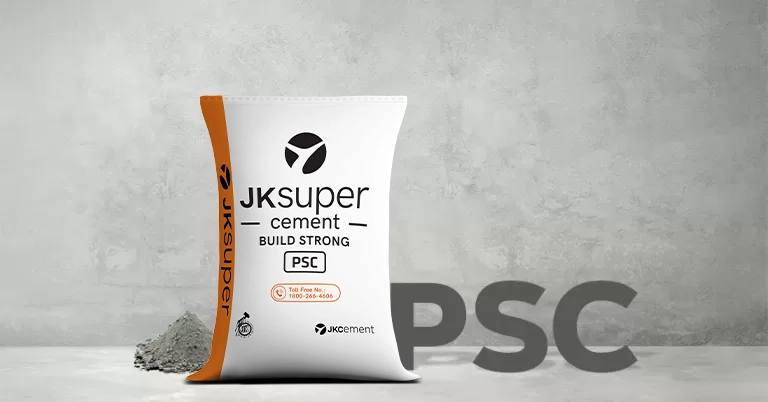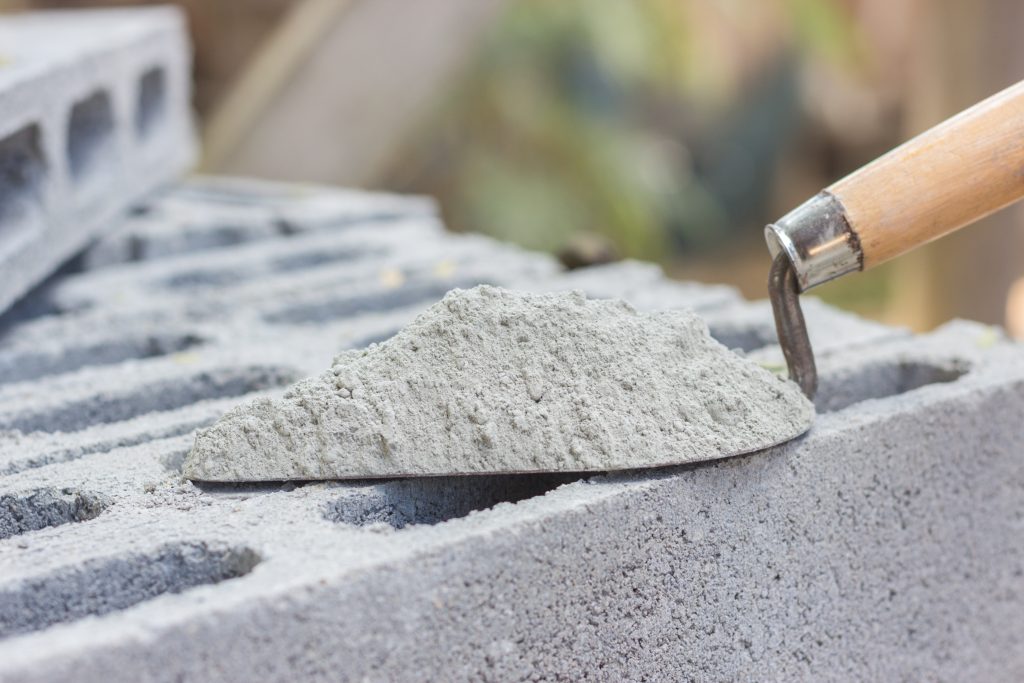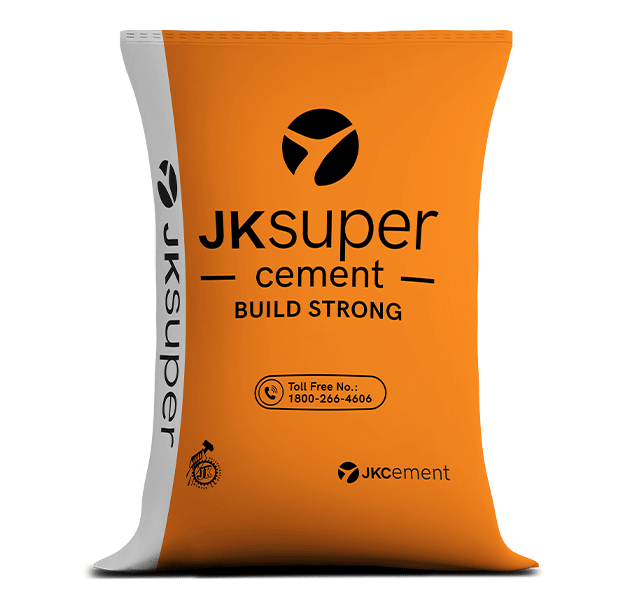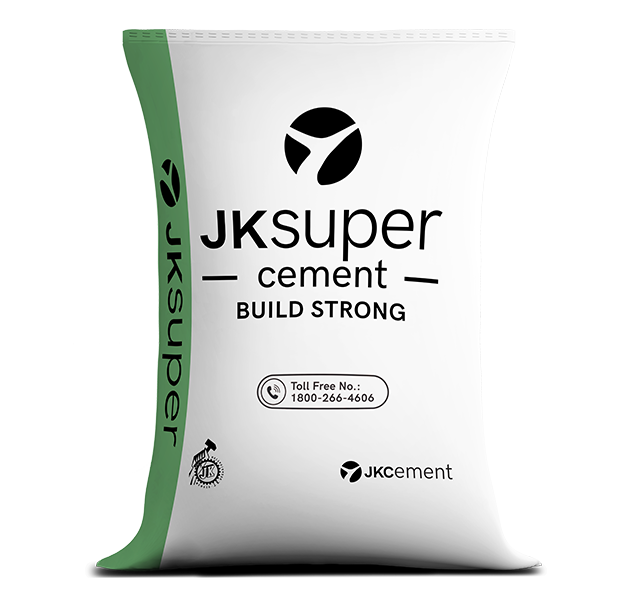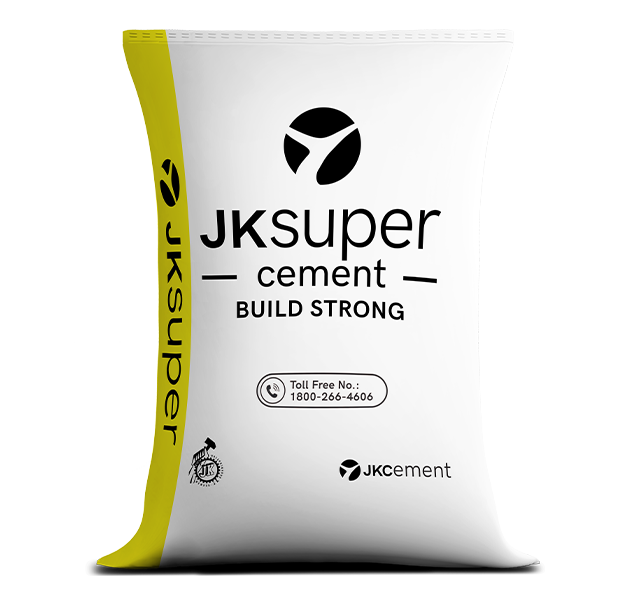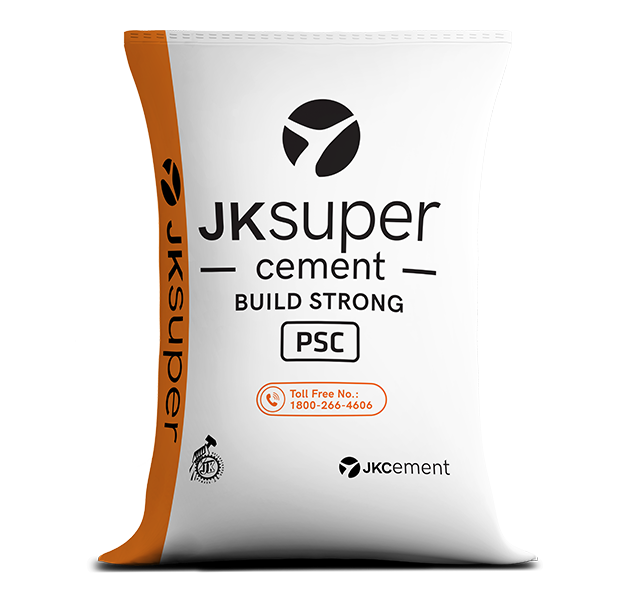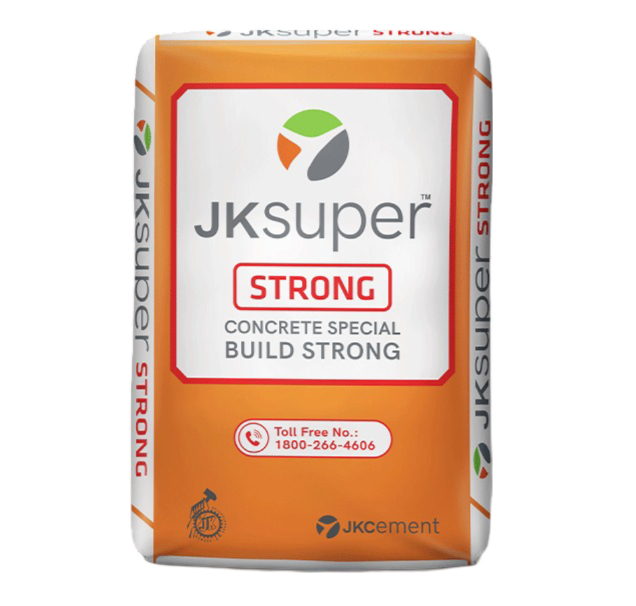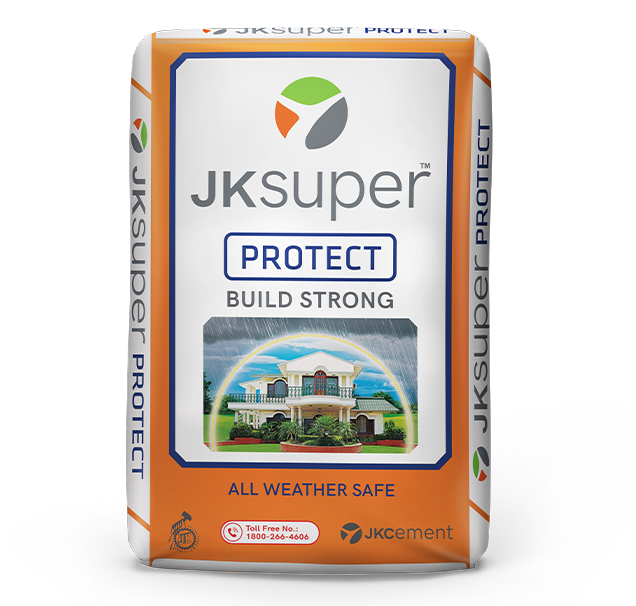Various cement types serve different construction needs. The main constituents of cement are limestone and clay. However, when you add certain constituents to it, the characteristics of cement can be enhanced. The most widely used Portland cement is categorised into three types, OPC, PPC and PSC. In this article, we will cover the fundamentals of PSC, how it’s made, its properties, its uses and benefits.
What is PSC in Cement?
The full form of PSC in cement is Portland Slag Cement. Portland cement is made by heating a mixture of limestone and clay in kilns at high temperatures to form pebble-sized materials known as clinker. The clinker is finely ground to form Portland Cement. Portland cement blended with blast furnace slag is known Portland Slag Cement.
What is Slag1?
Slag is a non-metallic byproduct of smelting ores. When iron is produced, iron ore, iron scraps, limestone, coke, etc., are heated in a blast furnace. Coke is a type of fuel that burns to produce carbon monoxide, which converts solid iron ore into molten iron. The molten iron is cast into various iron products. When the iron ore is being combusted, it produces slag. Blast furnace slag consists of silicates, aluminosilicates and calcium-alumina-silicates. The molten slag comprises about 20% by mass of iron production.
The molten slag is cooled down to make it usable. In the case of PSC, manufacturers typically use granulated blast furnace slag. The molten slag is cooled by rapid water quenching to create a solidified structure with little to no crystallisation. This rapid cooling results in sand-size fragments, hence the term granulated Portland Cement.
How is PSC Made2?
Portland Slag Cement is manufactured as follows:
- Materials comprising lime, silica, alumina and iron oxide are intimately grounded.
- This mix is heated at extremely high temperatures in a kiln to form Portland clinker.
- Portland cement clinker is ground with granulated slag with the addition of natural or chemical gypsum or calcium sulphate. Portland cement can be uniformly blended with finely ground granulated slag.
- No material other than gypsum should be added to the mix. Also, gypsum should be added in an amount that does not cause sulphur trioxide content to exceed 3%.
- The slag constituent should be in the range of 25% to 65% by mass of Portland Slag Cement.
- Natural or chemical gypsum may be added during the grinding process.
Applications of PSC
PPC can be used in the following constructions:
- Portland Slag Cement is suitable for general construction work including concrete mix, plasterwork and masonry.
- PSC is also suitable for hydraulic works like dams, retaining walls, etc.
- Mass concrete works like diaphragm walls, concrete roads, large foundations, etc., can also use PSC.
- PSC is especially preferred for marine construction like ports, harbours, or constructs near the coastal area.
- Industrial structures that are highly exposed to aggressive chemical environment can also be built using PSC.
- It is suitable for constructing parking lots, flooring, pathways, and basement constructions.
Properties of Portland Slag Cement2
Per the Bureau of Indian Standards (BIS), Portland Slag Cement has the following physical properties:
Initial Setting Time
The initial setting time of cement is the time when it starts to lose its plasticity after being mixed with water. The initial setting time for Portland Slag Cement is 30 minutes (minimum).
Final Setting Time
The time when cement loses its plasticity completely after it has been mixed water is the final setting time. The final setting time for PSC is 10 hours (maximum).
Fineness
Fineness of cement is its particle size of cement which impacts the surface area and. The surface of PPC must not be less than 225m2/kg.
Soundness
Soundness of cement is the change in the volume of cement when its set and hardened. Unaerated Portland Slag Cement shall not have an expansion of more than 10 mm and 0.8%, respectively.
Compressive Strength
Compressive strength is to the capacity of concrete to withstand load without cracking or deflecting. The compressive strength of concrete at 72, 168 and 672 hours should be 16N/mm2, 22 N/mm2, and 33 N/mm2, respectively.
Benefits of Portland Slag Cement
Here are the advantages of Portland Slag Cement:
- Portland Slag Cement has resistance to sulphates and chloride. Hence, it is suitable in environments and soil where the content of sulphates and chlorides is high.
- Slag produced from smelting irons is repurposed and used to make cement. This makes PSC a sustainable construction material.
- PSC also facilitates reduced leaching of lime. Lime leaching is when excess water flows from cement.
- It provides better workability and application.
- Slag cement is also resistant to weathering attacks.
Get the necessary strength for your building constructions with JK Super Cement – PSC.
FAQs
What is the difference between OPC, PPC and PSC?
When Portland cement clinker is ground with gypsum, it produces Ordinary Portland Cement (OPC). When Portland cement is blended with fine pozzolana, it creates Portland Pozzolana Cement. Additionally, when Portland cement is intimately blended with ground slag, it produces PSC. PPC and PSC are blended cements that enhance the quality of the Portland cement.
How are the constituents of concrete?
A paste of cement and water is mixed with fine and coarse aggregates like sand, gravel or crushed rocks to form concrete. The proportions of cement, water and aggregates are either fixed or customised by an engineer per the construction requirement. What are the grades of concrete?4
The grade of concrete is the compressive strength of concrete at 28 days. The following are the various grades of concrete:
| Group | Grade Designation | Specified Characteristic Compressive Strength of 150 mm Cube at 28 Days in N/mm2 |
| Ordinary Concrete | M10 | 10 |
| M15 | 15 | |
| M20 | 20 | |
| Standard Concrete | M25 | 25 |
| M30 | 30 | |
| M35 | 35 | |
| M40 | 40 | |
| M45 | 45 | |
| M50 | 50 | |
| M55 | 55 | |
| High Strength Concrete | M60 | 60 |
| M65 | 65 | |
| M70 | 70 | |
| M75 | 75 | |
| M80 | 80 |
How should PSC cement be stored?
Portland Slag Cement must be stored in weather-proof spaces to prevent dampness. It should be stored in a way that allows easy access for when the cement needs to be inspected.
Can I use Portland Slag Cement to build a home in a coastal region?
Yes, you can. Portland Slag Cement is an ideal for home constructions in coastal areas as it can resist sulphate and chloride in the sea water.
*Disclaimer: The information provided above is for general purpose and should not be used as a substitute for professional advice.

